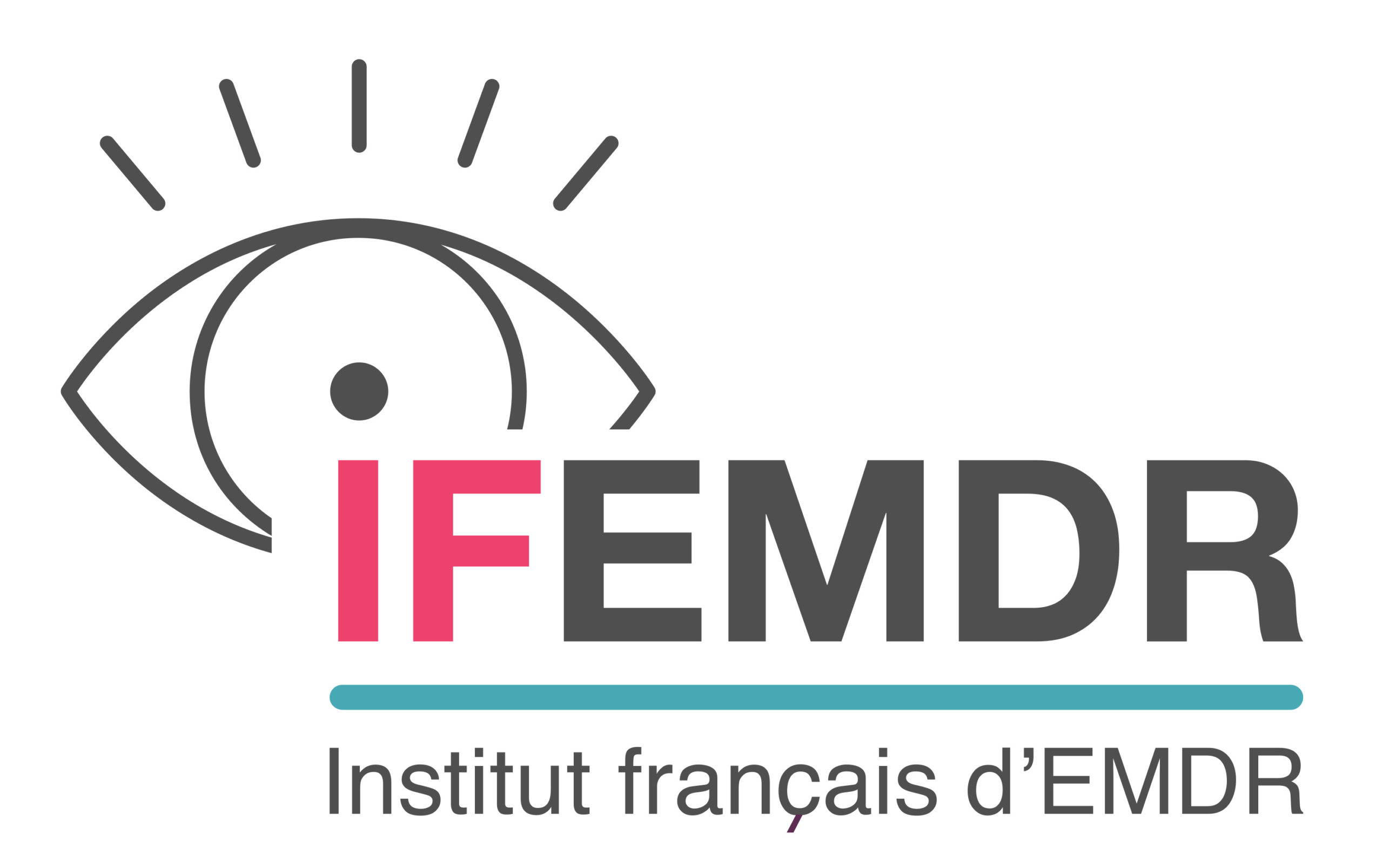Suzette Boon

Suzette Boon est psychologue clinicienne et psychothérapeute au Centre d’expertise et de référence du Trauma Altrecht, à Zeist.
Elle est la première présidente de la Société Européenne pour l’étude du Trauma et de la Dissociation (ESTD) et a mené des recherches importantes sur le diagnostic des troubles dissociatifs.
Elle est également superviseur de la Société néerlandaise pour l’Hypnose et de la Société néerlandaise pour la thérapie familiale.
Elle a plus de trente ans d’expérience dans les institutions de santé mentale et a exercé à la fois dans les établissements psychiatriques, à l’hôpital et en ambulatoire.
Depuis la fin des années 80, elle s’est spécialisé dans le diagnostic et le traitement de patients ayant des antécédents de traumatismes psychologiques précoces, en particulier les patients souffrant de troubles dissociatifs complexes.
Elle a traduit et validé la version néerlandaise du Structured Clinical Interview for DSM-IV Dissociative Disorders (SCID-D) et a obtenu un doctorat pour sa thèse Multiple Personality Disorder in the Netherlands en 1993.
Elle a développé un manuel de formation pour les patients souffrant d’un trouble dissociatif complexe et a actuellement huit ans d’expérience dans l’utilisation de ce manuel dans des groupes structurés aux Pays-Bas. En outre, elle a supervisé des projets en Norvège et en Finlande utilisant ce manuel. Sa version anglaise (avec Kathy Steele, MN, CS et Onno van der Hart, PhD) a été publiée en mars 2011 par les éditions Norton. Des traductions ont été publiées en finnois, suédois, néerlandais, allemand, norvégien, français, italien, espagnol et polonais.
Elle mène actuellement des recherches sur un nouvel entretien diagnostique destiné à évaluer les troubles liés aux traumatismes chroniques, en particulier les troubles dissociatifs – le Trauma and Dissociation Symptoms Interview (TADS-I). Ce nouvel instrument, qui fait suite à une version antérieure (IDDTS, 2006), a été introduit dans plusieurs pays européens. L’entretien sera publié en 2023 dans le cadre d’un nouvel ouvrage : Assessment of Trauma-Related Dissociation (Boon, 2023) par Norton Publishers. Le livre néerlandais a été publié en 2022.
Elle propose des ateliers et des formations sur le thème des traumatismes psychologiques, ainsi que le diagnostic et le traitement des troubles dissociatifs, et des supervisions d’équipes thérapeutiques et de professionnels traitant des patients sévèrement traumatisés et leurs familles.
Suzette Boon est cofondatrice de la Société européenne pour le traumatisme et la dissociation (ESTD), dont elle a été la première présidente. Elle a organisé la première conférence de l’ESTD à Amsterdam en 2008. Elle a été coorganisatrice de la deuxième conférence de l’ESTD en avril 2010 à Belfast, de la troisième conférence de l’ESTD en mars 2012 à Berlin et de la quatrième conférence de l’ESTD à Amsterdam en 2016.
Nous avons invité Suzette à faire plusieurs formations chez nous :
- Trauma complexes et Troubles dissociatifs : introduction, diagnostic et stabilisation en février 2018,
- Après le diagnostic, quelles sont les prochaines étapes ? Traitement pratique en phase 1 (stabilisation) dans les troubles dissociatifs complexes en janvier 2021,
- Diagnostic et diagnostic différentiel de troubles dissociatifs et autres troubles liés au traumatisme en février 2018, novembre 2021, octobre 2023.
Livres
Suzette Boon a publié plusieurs livres, chapitres de livres et de nombreux articles sur le diagnostic et le traitement des troubles dissociatifs.
A patient-oriented manual for complex trauma survivors
Ce manuel de formation destiné aux patients souffrant d’un trouble dissociatif lié à un traumatisme comprend de courts textes éducatifs, des fiches de travail et des exercices qui traitent des façons dont la dissociation interfère avec les compétences émotionnelles et de vie essentielles, et qui soutiennent la communication intérieure et la collaboration avec les parties dissociatives de la personnalité. Les sujets abordés comprennent la compréhension de la dissociation et du TSPT, l’utilisation de la réflexion intérieure, la régulation des émotions, la gestion des problèmes dissociatifs liés aux déclencheurs et aux souvenirs traumatiques, la résolution des problèmes de sommeil liés à la dissociation, la gestion des difficultés relationnelles et l’aide pour de nombreuses autres difficultés de la vie quotidienne. Le manuel peut être utilisé dans le cadre d’une thérapie individuelle ou de groupes structurés.
En 2022, le livre Assessment of Trauma-related Dissociation (Évaluation de la dissociation liée au traumatisme), comprenant l’intégralité de l’entretien TADS-I, a été publié en néerlandais aux Pays-Bas. La traduction anglaise de ce livre et du TADS-I sera publiée en 2023 par Norton Publishers. D’autres traductions suivront. Actuellement, un accord a été conclu pour une traduction en finnois, allemand, espagnol et italien du livre et du TADS-I.
Les troubles dissociatifs liés au traumatisme sont de plus en plus pris en compte dans la pratique thérapeutique et la littérature clinique. D’une part, les troubles dissociatifs sont encore trop souvent négligés, d’autre part, ils sont également diagnostiqués plus fréquemment lorsqu’ils ne sont pas réellement présents. Ce livre traite de l’évaluation de ces troubles, à l’aide de l’instrument de diagnostic, le Trauma and Dissociation Symptoms Interview (TADS-I ), que j’ai développé au cours des dernières décennies. J’aborde d’abord les dilemmes concernant les critères diagnostiques des troubles dissociatifs dans le DSM-5 et la CIM-11. Je décris ce que sont réellement les symptômes dissociatifs et comment un clinicien peut reconnaître ces symptômes et les différencier d’autres altérations de la conscience. Plusieurs chapitres thématiques abordent les principales considérations en matière de diagnostic différentiel et les illustrent par des rapports de cas. Il est également question de la survenue de diagnostics faussement négatifs et faussement positifs de troubles dissociatifs liés à un traumatisme, de l’évaluation des expériences traumatiques et de l’élaboration d’un plan de traitement. Ce livre est avant tout destiné aux cliniciens (psychiatres, psychologues cliniciens, psychothérapeutes et infirmiers spécialisés) qui veulent (apprendre à) diagnostiquer les troubles dissociatifs. Pour les collègues qui ne pratiquent pas l’évaluation des troubles dissociatifs, il fournit de nombreuses informations destinées à aider les cliniciens à mieux reconnaître les patients présentant des symptômes dissociatifs et à les orienter vers des tests diagnostiques spécialisés. L’outil de diagnostic complet TADS-I est inclus dans le livre et peut être téléchargé.
Publications
In English
- Boon, S. (1997). The treatment of traumatic memories in DID: Indications and contraindications. Dissociation. Vol.X, No.2, 65-79.
- Boon, S. & Draijer, N. (1991). Diagnosing Dissociative Disorders in the Netherlands. A pilot study with the Structured Clinical Interview for DSM-III-R dissociative Disorders. American Journal of Psychiatry, 148, 458- 462.
- Boon, S. & Draijer, N. (1993a). Multiple Personality Disorder in the Netherlands. A clinical investigation of 71 patients, American Journal of Psychiatry, 150 (1993a) 3: 489-494
- Boon, S. & Draijer, N. (1993b). Multiple Personality Disorder in the Netherlands. (Amsterdam: Swets & Zeitlinger, 1993b) (Dissertation, 1993b)
- Boon, S. & Draijer, N. (1993c). The Differentiation of Patients with MPD or DDNOS from patients with a cluster B Personality Disorder”, Dissociation, 6, 2/3, 126-135.
- Boon, S. & Steele, K. (2011). Skills-Based Structured Group Treatment for Patients with Complex Dissociative Disorders: an Overview of a new Therapeutic approach. In: ESTD Newsletter, 1(2) pp 6-9.
- Boon, S. Steele, K & Hart, O. van der (2011). Coping with Trauma-Related Dissociation: Skills Training for Patients and Therapists. New York: Norton (Current translations in Finnish, Swedish, Dutch, German; Norwegian, French and Italian translations are forthcoming)
- Draijer, N. & Boon, S. (1993). The validation of the Dissociative Experience Scale against the criterion of the SCID-D, using Receiver Operating Characteristics (ROC) analysis. Dissociation. Vol. VI, No.1, pp. 28-37
- Draijer, N. & Boon, S. (1999). The Imitation of Dissociative Identity Disorder. Patients at risk; therapists at risk. The Journal of Psychiatry and Law, 27, fall-winter, 423-458.
- Hart, O. van der, Boon, S., & Everdingen, G.A. van (1990). Writing assignments and hypnosis in the treatment of traumatic memories. In: M.L. Fast & D.P. Brown (Eds.), Creative mastery in hypnosis and hypnoanalysis: A Festschrift for Erika Fromm (pp. 231-253). Hillsdale, NJ: L. Erlbaum Associates.
- Hart, O. van der & Boon, S. (1997). Treatment strategies for complex dissociative disorders: Two Dutch case examples. Dissociation, 9(3), 157-165.
- Hart, O. van der, Boon, S. & Heijtmajer Jansen, O. (1997). Ritual abuse in European countries: A clinician’s perspective. In G.A. Fraser (Ed.), The dilemma of ritual abuse: Cautions and guides for therapists (pp. 137-163). Washington, DC: American Psychiatric Press
- Hart, O. van der, Steele, K., Boon, S., und Brown, P. (1993). The treatment of traumatic memories: Synthesis, Realization and Integration. Dissociation, 6, 162-180
- Hart, O. van der, Kolk, B.A. van der & Boon, S. (1998). Treatment of dissociative disorders. In J.D. Bremner & C.R. Marmar (Red.), Trauma, memory, and dissociation (pp. 253-283). Washington, DC: American Psychiatric Press.
In French and German
- Hart, O. van der & Boon, S. (1993). Le Traitement du désordre de la personnalité multiple.Annales Médico-Psychologiques: 1993, 151, no. 8.
- Hart, O. van der, Steele, K., Boon, S. & Brown, P. (1995). Die Behandlung traumatischer Erinnerungen: Synthese, Bewußtwerdung und Integration Hypnose und Kognition: Band 12, Heft 2, October 1995
In Dutch
- S. Boon & O. van der Hart (2018). Dissociatieve stoornissen in: E. Simon e.a [red] klinische psychologie. diagnostiek en behandeling. Groningen/ Utrecht. Noordhoff Uitgevers pp. 239-252
- S. Boon & O. van der Hart (2017) . Diagnostiek van dissociatieve stoornissen. in: A. Driessen en W. Langeland [red] Praktijkboek Psychotrauma. Amsterdam: b.v. Uitgeverij SWP pp. 57-71
- Boon, S. (2003, 2008). Directieve en hypnotherapeutische interventies als onderdeel van een fasengerichte behandeling van vroeger seksueel misbruik. In: Nicolaï, N (Red.) Handboek Psychotherapie na seksueel misbruik (pp. 201-215), Utrecht, de Tijdstroom
- Boon, S. (2012). De Behandeling van Complexe Dissociatieve stoornissen. In: van Lichtenburg, C. (2012) Wat als ik .. wij zijn. (pp. 108-138). Leiden. De Witte Uitgeverij.
- Boon, S. (2013). Behandeling van cliënten die (ritueel) misbruik door georganiseerde dadernetwerken rapporteren. Reflectie op bijna dertig jaar ervaring. Tijdschrift voor Psychotherapie, 39, 6 pp 441-452
- Boon, S. & Draijer, N. (1995a). Screening en diagnostiek van dissociatieve stoornissen. Lisse/Amsterdam Swets & Zeitlinger (Screening and diagnosis of dissociative disorders)
- Boon, S. & Draijer, N. (1995b). Comorbiditeit bij de Dissociatieve Identiteitsstoornis In: C.A.L.Hoogduin et.al (Red.). Jaarboek voor Psychiatrie en Psychotherapie (pp 103-115) Houten: Bohn Stafleu Van Loghum.
- Boon, S. & Draijer, N. (2007). Diagnostiek van dissociatieve stoornissen met de SCID-D: mogelijkheden en beperkingen Psychopraxis, 9, 27-32
- Boon, S. & Draijer, N. (2012). Dissociatieve Stoornissen In T. Ingenhoven et al (Red.): Handboek Borderline Persoonlijkheidsstoornis. (pp329-341). Utrecht: De Tijdstroom
- Boon, S. & Hart, O. van der (1988a). Dissocieren als overlevingsstrategie bij fysiek en seksueel geweld. Trauma en Dissociatie I. Maandblad Geestelijke Volksgezondheid 43, 1197-1207
- Boon, S. & Hart, O. van der (1988b).Het herkennen van dissociatieve stoornissen in het bijzonder de multiple persoonlijkheidsstoornis. Maandblad Geestelijke Volksgezondheid 43, 1208-1225
- Boon, S. & Hart, O. van der (1989).De Behandeling van de multiple persoonlijkheidsstoornis. Maandblad Geestelijke Volksgezondheid, 44, 1283-1299
- Boon, S. & Hart, O. van der (1991). De behandeling van de multiple persoonlijkheidsstoornis. In Hart, O. van der (Red.), Trauma, dissociatie en hypnose (pp. 159-187). Lisse: Swets & Zeitlinger.
- Boon, S. & Hart, O. van der (1994). De meervoudige persoonlijkheidsstoornis: Diagnostiek en behandeling. De Psycholoog, 29(11), 423-428.
- Boon, S. & Hart, O. van der (1995). De behandeling van de dissociatieve identiteitsstoornis In: Hart, O. van der (Red.), Trauma, dissociatie en hypnose, 3e druk (pp. 187-232). Lisse: Swets & Zeitlinger.
- Boon, S. & Hart, O. van der (1996). Stabilisatie en symptoomreductie in de behandeling van patiënten met een dissociatieve identiteitsstoornis. Tijdschrift voor Psychiatrie, 38(2), 159-172.
- Boon, S., Steele, K. & Hart, O. van der (2012) . Omgaan met trauma gerelateerde dissociatie: een vaardigheidstraining voor patienten en hun therapeuten. Amsterdam: Pearson
- Draijer, N. & Boon, S. (1996). Knelpunten in de differentiële diagnostiek van de dissociatieve identiteitsstoornis. Tijdschrift voor Psychiatrie, 2, 38, pp. 108 – 122
- Draijer, N., Langeland, W., & Boon, S.(2012a. Klinische diagnostiek van complexe traumagerelateerde stoornissen. In E. Vermetten et al (Red.). Handboek Postttraumatische Stressstoornissen (pp491-510). Utrecht: de Tijdstroom
- Draijer, N., Langeland, W., & Boon, S.(2012b). Complexe traumagerelateerde stoornissen na vroegkinderlijke traumatisering. In E. Vermetten et al (Red.). Handboek Postttraumatische Stressstoornissen (pp 619-638). Utrecht: de Tijdstroom
- Hart, O. van der & Boon, S. (1990). Hypnose bij multipele persoonlijkheidsstoornis. In C.A.L. Hoogduin et al. (Red.), Jaarboek voor psychiatrie en psychotherapie (pp. 164-174). Houten: Bohn Stafleu Van Loghum.
- Hart, O. van der & Boon, S. (1991). Dissociatieve stoornissen: Een model voor de behandeling van multipele persoonlijkheidsstoornis. In: R. van Dyck et al. (Red.), Hypnose en hypnotherapie (pp. 263-276). Houten: Bohn, Stafleu, Van Loghum.
- Hart, O. van der & Boon, S. (1991). Schrijfopdrachten en hypnose in de behandeling van traumatische herinneringen. In: Hart, O. van der (Red.), Trauma, dissociatie en hypnose (pp. 189-218). Lisse: Swets & Zeitlinger.
- Hart, O. van der & Boon, S. (1991).Mutiple Persoonlijkheidsstoornis bij kinderen. In W.H.G. Wolters Psychotrauma’s bij jongeren (pp47-70). Baarn: Ambo
- Hart, O. van der & Boon, S. (1993a). De behandeling van traumatische herinneringen bij de multiple persoonlijkheidsstoornis. Directieve therapie, 13(2), 114-160.
- Hart, O. van der & Boon, S. (1996). Dissociatieve stoornissen. In W. Vandereycken, C.A.L. Hoogduin & P.M.G. Emmelkamp (Red..), Handboek psychopathologie, deel III (pp. 126-144). Houten: Bohn Stafleu Van Loghum.
- Hart, O. van der, Boon, S., Friedman, B., & Mierop, V. (1992). De reactivering van traumatische herinneringen. Dth, 12(1), 12-55.
- Hart, O. van der & Boon S. (2001). De behandeling van de dissociatieve stoornissen In: R.E Abraham & J.Graste (Red.). Psychotherapie vanuit het deficit model (pp 43-64). Assen: Koninklijke van Gorcum B.V
Formation et expérience professionnelle
- 1967 : Baccalaureate Amsterdam
- 1968-1969 : University of Neuchatel (Switzerland) : French and Spanish
- 1968-1974 : University of Utrecht (the Netherlands) : Clinical Psychology and Child Psychology and Anthropology (MA)
- 1974-1976 : Regional Hospital in Tanzania, East Africa (research local witchcraft movement)
- 1976-1978 : Post-doctorate Psychotherapy training (University of Leiden, the Netherlands)
- 1978-2002 : Riagg Zuid Nieuw West Amsterdam (1978-1995 : Social Psychiatric Outpatient Department: functionPsychotherapist. 1995-2002 : Psychotherapy Department : function Psychotherapist)
- 1978-1984 : Further training in systemic therapy (family therapy) Workshops in The Netherlands and USA:J. Haley; S. Minuchin; P Papp; O. Silverstein;C.Tomm;Selvini Palazoli, Boscolo & Ceccin (Milan, Italy);M. Andolfi (Rome)
- 1978-1984 : Formal training in Hypnosis (both in the Netherlands and the USA)
- 1984- now : Specialization in diagnosis and treatment of Dissociative disorders and chronic Posttraumatic disorders
- 1988-1993 : Research Project at the Free University of Amsterdam. Subject : the reliability and validity of the Structured Clinical Interview for DSM-III-R Dissociative Disorders.
- 1993 : Ph.D. Free University of Amsterdam
- 1993-now : She has been giving many workshops, seminars and presentations in different European Countries and the USA (e.g the Netherlands, Belgium, Germany, France, Italy, Norway, Sweden, Finland, England, Slovakia, Israel)
- 1995-2002 : Forensic Psychiatric Department Roosenburg, Den Dolder , the Netherlands
- August 2002 : Regional Psychiatric Department Zeist. Program Coordinator“ Personality Disorders and Trauma-Related Disorders”
- 2003-2004 : Followed training in Young Schema Focus Therapy and STEPPS Skills training for Borderline Patients
- 2007-2014 : Top referent Trauma Center Zeist. Function : Consultant and Psychotherapist
- 2014-2016 : Top referent Trauma Center Zeist. Function : supervisor
- 2014-now : Working in private practice
- 2003-2013 : Development of New Diagnostic Interview. Trauma and Dissociation Symptoms Interview (TADS-I), formerly IDDTS
- 2004-2011 : Development of Skills Training Manual for Patients with a Complex Dissociative Disorder (DID and DDNOS), published in 2011
Prix
La Société internationale pour l’étude de la dissociation (ISSD) lui a décerné le David Caul Memorial Award en 1993, le Morton Prince Award en 1994, le President’s Award of Distinction et le statut de Fellow en 1995 pour ses contributions au diagnostic, au traitement, à la recherche et à l’éducation dans le domaine des troubles dissociatifs.
En 2009, elle a reçu le Life Time Achievement Award, et en 2011 le Pierre Janet writing Award pour le livre Coping with Trauma-Related Dissociation a Skills Training for Patients and their Therapists.

